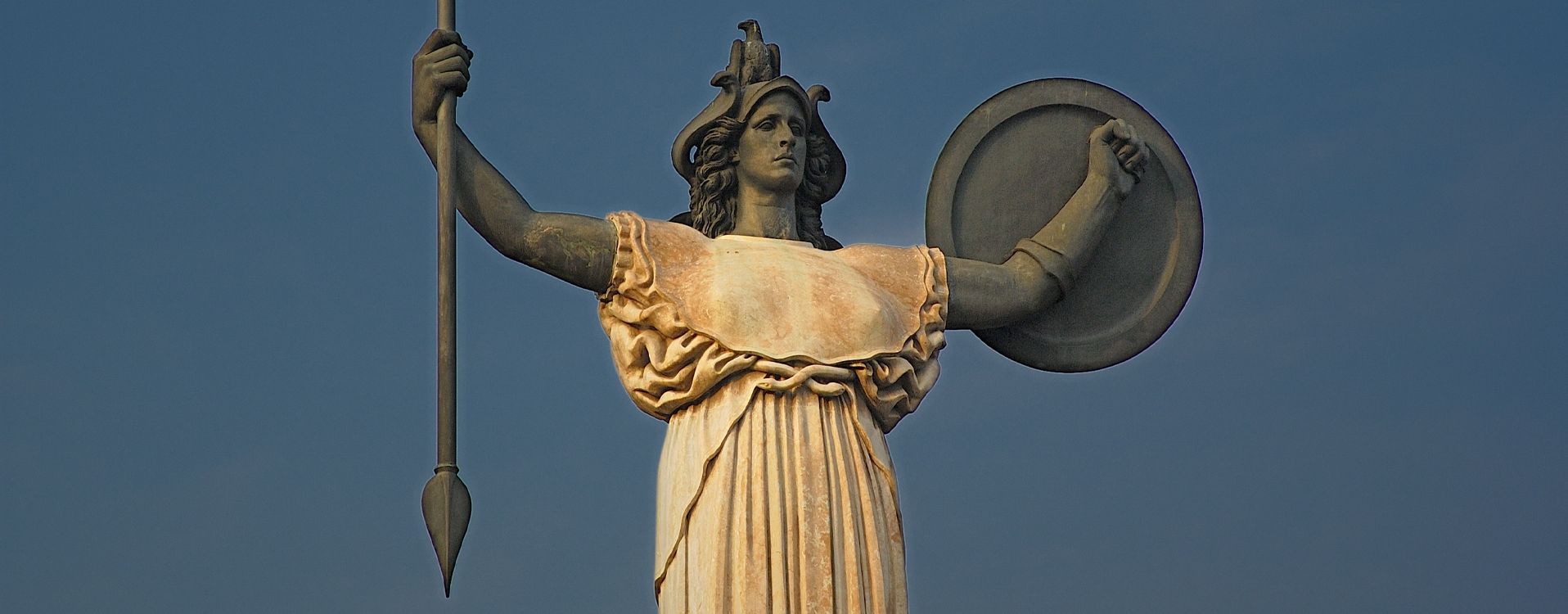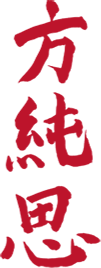Mētis and Liberation

Mētis Musings
Mētis and Liberation
For if Zeus swallowed Metis in order to become ‘pregnant with mētis,’ Athena is the daughter whom Metis was expecting at the very moment when she allowed herself to be taken by surprise. It is through her mother then that Athena is well-endowed in mētis. She is a warrior Athena, the goddess clothed in bronze as she was in the day of her birth and bearing the dazzling armour. . . . But in the domain of war, as in that of technology, the essential term by which a divine power can be defined remains that power’s mode of intervention, that is to say, in this case, the particular way that Athena uses the mētis with which she is so richly endowed. We must examine at greater length how it is that ‘prudence’ makes it possible to master the horse and to guide a ship through squalls during the night. But first we must briefly indicate how this same form of intelligence can play a role in the theatre of war directed by this bronze-clad power. (Detienne and Vernant, 179-180)
I remember my introduction to Greek mythology very clearly. In 1981, while waiting for my dad to wrap up his day on the Seattle Pacific University campus so we could walk home together, I found the beautifully-illustrated d’Aulaires’ Book of Greek Myths on the library shelves. I so loved the book that years later, I found it to share with my children. The pages dedicated to the origin story of Athena are open in front of me today, with two images. The first is of pregnant Mother Metis inside Zeus’s head with a hammer in her hand and a helmet in her lap. The text states: “Now it happened that Metis was going to have a daughter, and she sat inside Zeus’s head hammering out a helmet and weaving a splendid robe for the coming child. Soon Zeus began to suffer from pounding headaches and cried out in agony. All the gods came running to help him, and skilled Hephaestus grasped his tools and split open his father’s skull. Out sprang Athena, wearing the robe and the helmet, her gray eyes flashing. Thunder roared and the gods stood in awe.” (34) The second image is of Zeus gripping his temples with head bowed and eyes closed, as the warrior Goddess bursts forth from the crown of his head, radiant-eyed, armored, and looking directly out of the page. A cluster of witnesses watch with amazement from a distance.
Those working with goddess archetypes often identify the Athena type as chronically out of touch with the sacred feminine, naming her as “her father’s daughter,” preoccupied with intellectual pursuits and wounded in her heart. But in my holding of the origin story, it has always seemed clear to me that Athena is very much her mother’s daughter, and that the two of them are thick as thieves in the wars of liberation and love.
Metis, swallowed by Zeus because he feared her offspring would overthrow him, exercised her own cunning. Continuing her gestation against his knowledge and will, she is not absorbed but resides intact inside his body and uses her craftsmanship and wits to prepare for her coming child. Athena and her mother have been given an oppressive nursery; the cranium is not a pliable and nurturing uterus, but rigid and constraining. with neither outlet nor function for childbirth. Without a placental pillow gathering elemental nutrients, the head instead relies on its needs to be continuously met by external organ systems. For all its self-importance, it is barren and dependent. It is in this nursery that Metis continues the game of metamorphosis. She charts a path for her ongoing and independent generativity. With alchemical craft to create her daughter’s layette, she literally gives the divine masculine a debilitating headache while performing maternal-nesting in his skull. She tricks this privileged and now desperate power into having his skull cleaved open for relief. And her daughter, full of mētis, having been birthed and swaddled in bronze by the arms of her mother, then springs forth into her birthright of liberation. And not only freedom from constraint, but the freedom to be strong, clear-eyed, safe and unviolated in moving forward through the world. These are her mother’s gifts, and she is ever-after blessed by them.
In mythology, Athena’s compassion and fierce vision are given to heroes who are trapped and constrained, whether by ignorance, obstacles, chaos, or malevolence. She is not a Demeter, who sits passively at the hearth and grieves for Persephone imprisoned in Hades. It is in imitation of her mother, not her father, that Athena is a freeing force of practical wisdom, empowering human beings to move forward with the weapons they need, whether those of bodily vitality, sharp-eyed perspective or technological creativity. Consider, for example, Athena’s compassion for the unjustly imprisoned Odysseus at the start of Homer’s Odyssey.
Athena was concerned about Odysseus’ many troubles, trapped by the nymph Calypso in her house. “Father, and all immortal gods,” she said, “No longer let a sceptered king be kind, or gentle, or pay heed to right and wrong, Let every king be cruel, his acts unjust! Odysseus ruled gently, like a father, but no one even thinks about him now. The wretched man is stranded on an island; Calypso forces him to stay with her. He cannot make his way back to his country. He has no ships, no oars, and no companions to help him sail across the wide-backed sea. His son has gone for news of his lost father, in sandy Pylos and splendid Sparta; they plot to kill the boy when he returns! (Book V, lines 7-20)
Athena’s weapons of war both on and off the traditional battlefield are the wits of her mother Metis. And in their fullest form of justice towards liberation, they are compassionate to the suffering of being trapped and stranded. She maneuvers to help Odysseus confront his fears and leave Calypso’s island, where he promptly faces new death threats in the sea. Again and again, Athena uses her birthright mētis to call forth the mētis of Odysseus. He is not spared fear, for without fear there is no possibility of courage and resolve. He is not spared the threat of destruction and death. To be full of mētis is to be “shaken but purposeful,” understanding that the joy of freedom rallies in the face of ongoing adversity.
As when a father lies sick and weak for many days, tormented by some cruel spirit, till at last the gods restore him back to life; his children feel great joy; Odysseus felt that same joy when he saw land. He swam and longed to set his feet on earth. But when he was in earshot, he heard the boom of surf against the rocks. The mighty waves were crashing on the shore, a dreadful belching. Everything was covered in salty foam. There were no sheltering harbors for ships, just sheer crags, reefs and solid cliffs. Odysseus’ heart and legs gave way. Shaken but purposeful, he told himself. (394-407)
As he was thinking this, the waves grew big and hurled him at the craggy shore. His skin would have been ripped away, and his bones smashed, had not Athena given him a thought. He grabbed a rock as he was swept along with both hands, and clung to it, groaning, till the wave passed by. But then the swell rushed back, and struck him hard and hurled him out to sea. As when an octopus, dragged from its den, has many pebbles sticking to its suckers, so his strong hands were skinned against the rocks. A mighty wave rolled over him again. He would have died too soon, in misery, without the inspiration of Athena. (424-437)
We need role models and examples of the liberating Athena and her maternal mētis to inspire our own. Remember Harriet Tubman. The child of enslaved African-Americans, she was her mother’s daughter, changing her given name of Araminta to her mother’s name of Harriet when she was a young adult. She guided over 300 freedom-seekers along the Underground Railroad as a clever warrior, using her wits to manipulate the very structure and practices of enslavement towards the liberation of peoples. Like Odysseus on the stormy sea, she improvised with cunning mētis, famously fierce with a gun in hand to threaten the fugitives to face their fear rather than turning tail, or slyly using her own master’s horse and buggy for transporting her charges right under the slaveholder’s noses. Hearing that her wanted poster noted her illiteracy, she eludes capture on one occasion by pulling out a book and pretending to read it. She had many faces: daughter, mother, wife, guide, warrior, nurse, cook, spy. These dimensions of Harriet Tubman show her to be an Athena: an archetypal-liberator, a warrior goddess.
Mētis wisdom seeks the liberation of self and others. It often gives the privileged a terrible headache, which quite frankly, is the beginning of justice. This kind of human wisdom is in intimate relation with fear and oppression, from which the virtues of bravery and perseverance find their unique and powerful expressions. We prepare to exit captivity and oppression with alchemy and armor and metamorphosis and wit. Just as for Athena, mētis wisdom is every person’s birthright. None of us is mother-less when Mother Metis is holding space and fashioning the tools of freedom for our joyous passage.
References:
- Marcel Detienne and Jean-Pierre Vernant. Cunning Intelligence in Greek Culture and Society. Translated by Janet Lloyd. New Jersey: Humanities Press, 1978.
- Ingri and Edgar Parin d’Aulaire. Book of Greek Myths. New York: Bantam Doubleday Dell Publishing Group, 1962.
- Homer. The Odyssey. Translated by Emily Wilson. New York: Norton & Company, 2018.
- “Harriet Tubman,” accessed at https://www.pbs.org/wgbh/aia/part4/4p1535.html on October 28, 2020.
Teacher
An experienced instructor, clinical supervisor and recipient of multiple teaching awards, inviting joy and insight in training and teaching settings.
Coach
A board-certified coach, specializing in executive and professional care for strength-building and creativity at growth edges and in leadership.
Speaker
An authentic and warm public speaker, weaving interdisciplinary insights and humanistic perspectives to support a deepening sense of community.
Demand meaning in the moments of your life.
Chart a navigation course that is clear-eyed and nimble.
Cultivate the habits of perspective, creativity, and curiosity.
Call forth your fiercest capacities for courageous authenticity.
Seek Wisdom.
Janēta Fong Tansey, MD PhD












